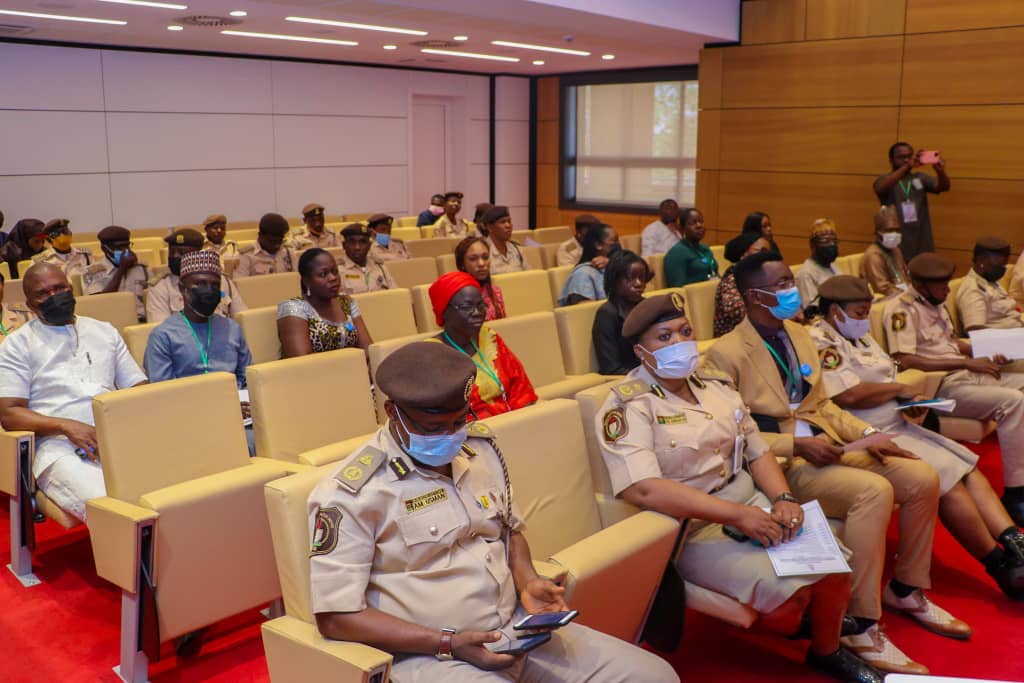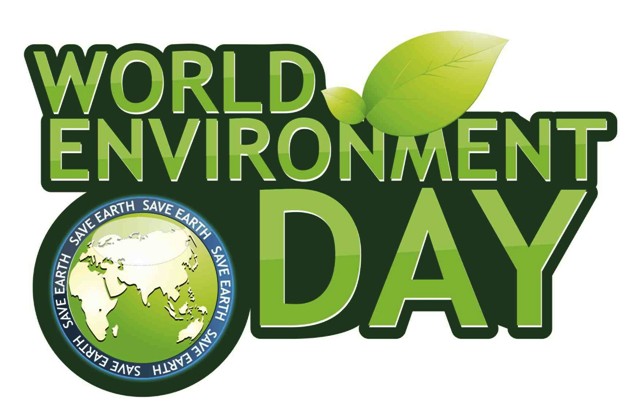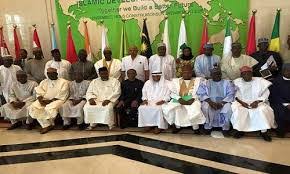Editorial
That FG’s Directive On Passport Production

Nigerians with expired international passports and first-time applicants may now find relief as the
Minister of Interior, Olubunmi Tunji-Ojo, has issued a directive to clear all pending passport applications within two weeks. To improve efficiency, the minister has been working with service providers and the Nigeria Immigration Service (NIS) to digitise and decentralise the passport issuance and renewal procedures.
The Federal Government recently announced plans to address passport delays by increasing daily production to, at least, 24,000. This decision follows the clearance of a backlog of 97,000, out of an initial 200,000 pending passports. This shows the government’s commitment to improving the issuance process.
Miffed by the development, the Senate instructed its Committee on Interior to promptly investigate the NIS regarding the delay in issuing and renewing Nigerian passports. The committee is also tasked with investigating the contract for passport production and submitting a report within two weeks. The delay in passport renewal causes significant hardships for Nigerians needing to travel or return to the country.
The national passport is a vital diplomatic tool that not only enables international travel but also represents the dignity of a nation and the rights of its citizens. However, the presence of corruption within Nigeria’s passport system has resulted in delays and frustrations for individuals in need of passport services. These challenges serve as a stark reminder of the importance of upholding integrity and efficiency in the acquisition, renewal, and retrieval processes of the passport.
The minister’s call, therefore, is timely, and must be emphasised consistently, as many Nigerians frequently encounter unauthorised people who claim to assist them in obtaining passports. This situation arises when citizens face obstacles or lengthy delays in obtaining their passports.
Tunji-Ojo’s order highlights the importance of eliminating the circumstances that encourage applicants to resort to touts and dishonest officials, who collude to frustrate even the most law-abiding passport seekers.
The federal and state Ministries, Departments, and Agencies in Nigeria exhibit ingrained insensitivity and mediocrity, resulting in citizens unfairly bearing the burden of their inefficiency. This is evident in processes such as registration for the National Identification Number (NIN), driver’s licences, vehicle number plates, and the application and issuance of the Bank Verification Number (BVN), among others. Unfortunately, there appears to be no improvement in the disrespectful treatment of citizens by public officials.
The immigration service should use technology and efficient models to address delays caused by passport scarcity and other issues. It is a positive development that the Nigerian Security Printing and Minting Company’s (NSPMC) machine-readable passport has been replaced by an electronic passport through partnerships with IRIS Smart Technologies and NSPMC, aimed at ending document shortages.
There are often urgent trips for citizens all over the world. The NIS must make standard provisions for this. Many genuine travellers, including the sick and students, have missed once-in-a-lifetime opportunities due to the inefficiency of the NIS, as well as the diverse MDAs, most of whom perform poorly in service delivery. The Federal Government must make provisions for all citizens needing a passport for urgent travel. They do not have to be high-ranking citizens or related to politicians.
It is reassuring that the minister has put a timeline on the process. In this age of digitalisation, this would be achievable if the officials are kept on their toes and provided with top-notch gadgets and an enabling working environment. The online payment system should be reactivated. It will ensure that the only interaction with staff is the enrolment of biometrics. Patronising touts and dubious passport office officials would defeat the purpose of eliminating corruption and infusing integrity into the passport administration process.
Passport seekers should also exercise patience and follow the laid down rules. It is trite to note that if there are no willing givers of bribes, there will be no takers. The need to insist on due process in all transactions is now evident. The country needs a national reorientation when obtaining public services. That orientation will include an insistence on due process and abstaining from unethical short-circuiting of the process. Those who wish to short-circuit a process may be ‘electrocuted’ in the process.
The decentralisation of production centres will help in ending the shortage of booklets, which is one avenue for extortion of applicants. Unscrupulous officials have been known to hoard booklets and subsequently release them to the highest bidders. With adequate production and distribution of booklets across all passport centres in the 36 states and FCT, as well as designated diplomatic missions abroad, the fraudulent activity can be eliminated or reduced to the barest minimum.
Effective monitoring of officials is critical for combating touting and improving the system. Mere speeches from high-ranking individuals are inadequate. Officials must prioritise their duties, and those who fail should face punishment as a deterrent.
Nigerians should have a smooth process for obtaining and renewing passports and other travel documents. This is not just a duty but a moral obligation. After 63 years of independence, the system should have perfected this process and restored dignity to the Nigerian passport, earning respect internationally.
Nigeria needs to align with modern trends, and the Interior Ministry, which supervises the NIS, should aspire to global best practices and imbibe zero tolerance for incompetence. The rest of the world is breaking new grounds and exploring new frontiers in service delivery by applying technology, including artificial intelligence (AI) and other simplified processes. Nigeria should adopt such modern tools to facilitate swift and secure issuance of the nation’s passport booklet. This is the only way to move forward!
Editorial
Responding To Herders’ Threat In Rivers

Editorial
Democracy Day: So Far…

Nigeria’s return to democratic rule in 1999 marked a watershed moment in the nation’s political history. After enduring nearly 16 years of successive military dictatorships, Nigerians embraced a new era of civil governance with the inauguration of President Olusegun Obasanjo on May 29, 1999. Since then, the country has sustained a democratic system for 26 years. But, this democratic journey has been a complex mix of progress and persistent challenges.
The formal recognition of June 12 as Democracy Day in 2018 by former President Muhammadu Buhari acknowledged a long-standing injustice. The annulment of the 1993 presidential election, Nigeria’s freest, betrayed the democratic aspirations of millions. That it took decades to honour this date reflects the nation’s complex relationship with its democratic memory.
One of the most momentous successes of Nigeria’s democracy has been the uninterrupted civilian rule over the last two and a half decades. The country has witnessed seven general elections, with power transferring peacefully among different political parties. This is particularly notable considering that prior to 1999, no civilian government had completed a full term without military intervention. The peaceful transitions in 2007, 2015, and 2023 are testaments to Nigeria’s evolving democratic maturity.
Electoral participation, while uneven, has also reflected a level of democratic engagement. In 2003, voter turnout stood at about 69 per cent, but this figure dropped to approximately 34.75 per cent in 2023, according to the Independent National Electoral Commission (INEC). Although the declining turnout raises concerns, it also highlights the increasing expectations of the electorate, who demand credible and transparent elections.
Another area of progress is the growth of a vibrant and free press. Nigerian media has played a crucial role in holding governments accountable and fostering public discourse. Investigative journalism and civil society activism have exposed corruption and human rights abuses. The rise of social media has further expanded the democratic space, enabling young Nigerians to mobilise and advocate for change, as evidenced by the 2020 #EndSARS protests.
Judicial independence has seen mixed results. On one hand, the judiciary has occasionally demonstrated resilience, such as in landmark rulings that overturned fraudulent elections or curtailed executive excesses. On the other hand, allegations of political interference and corruption within the judiciary persist, undermining public confidence in the legal system’s impartiality.
Nigeria’s democracy has also facilitated the decentralisation of power through the federal system. State governments now wield some autonomy, allowing for experimentation in governance and service delivery. While this has led to innovative policies in some states, it has also entrenched patronage networks and uneven development across the federation.
Despite these successes, Nigeria’s democratic journey faces formidable problems. Electoral integrity remains a critical concern. Reports from election observers, including those from the European Union and ECOWAS, frequently highlight issues such as vote-buying, ballot box snatching, and violence. The introduction of the Bimodal Voter Accreditation System (BVAS) and electronic transmission of results in 2023 elections showed promise, but technical glitches and alleged manipulations dampened public trust.
Corruption continues to be a pervasive issue. Nigeria ranks 145th out of 180 countries on Transparency International’s 2023 Corruption Perceptions Index, with a score of 25/100. Democratic institutions meant to check graft—such as anti-corruption agencies and the legislature—often struggle due to political interference and weak enforcement mechanisms.
Security challenges have also strained Nigeria’s democracy. Insurgency in the North East, banditry in the North West, separatist agitations in the South East, and herder-farmer conflicts across the Middle Belt have collectively resulted in thousands of deaths and displacements. According to the Global Terrorism Index 2024, Nigeria ranks as the eighth most impacted country by terrorism. The government’s difficulty in ensuring safety erodes public confidence in the state’s capacity and legitimacy.
The economy poses another critical remonstrance. Nigeria’s Gross Domestic Product (GDP) per capita stands at approximately $2,400 as of 2024, with over 40 per cent of the population living below the national poverty line. High unemployment and inflation have fueled discontent and disillusionment with democratic governance, especially among youth. Without addressing economic grievances, the democratic dividend will remain elusive for many Nigerians.
Ethnic and religious divisions further complicate Nigeria’s democratic consolidation. Politicians often exploit identity politics for electoral gains, exacerbating social tensions. Although federal character principles aim to promote inclusiveness, they have also sometimes fostered a quota mentality rather than merit-based appointments.
Gender representation remains inadequate in Nigeria’s democratic institutions. Women occupy less than 10 per cent of seats in the National Assembly, one of the lowest rates globally. Efforts to pass gender parity bills have faced stiff resistance, highlighting deep-seated cultural and institutional barriers to female political participation.
Civil liberties, while constitutionally guaranteed, are under threat. Crackdowns on protesters, restrictions on press freedom, and surveillance of activists reveal an authoritarian streak within the democratic framework. The controversial Twitter ban in 2021 exemplified the country’s willingness to curb digital freedoms, prompting domestic and international criticism.
The political crisis in Rivers State embodies broader democratic struggles. Attempts to control the state through undemocratic means expose weaknesses in federal institutions and the rule of law. Immediate restoration of democratic governance in Rivers State is vital to preserving Nigeria’s democratic integrity and institutional credibility.
Local governments remain under the control of state governors, depriving citizens of grassroots democracy. Last year’s Supreme Court judgment on local government autonomy is promising, but state-level resistance threatens its implementation. Genuine autonomy would bring governance closer to the people and foster democratic innovation.
As we mark Democracy Day, we must honour the sacrifices of Chief M.K.O. Abiola, Kudirat Abiola, Femi Falana, Chief Gani Fawehinmi, Pa Alfred Rewane, President Bola Tinubu, and countless others, who fought for Nigeria’s freedom. As democracy in Nigeria continues to evolve after 26 years, this day should inspire action toward its renewal. With despotism and state failure as real threats, both citizens and leaders must take responsibility—citizens by demanding more, and leaders by delivering. Excuses are no longer acceptable.
Editorial
Nigeria’s Plastic Pollution Emergency

Yesterday, Nigeria joined the rest of the world to mark 2025 World Environment Day. The occasion serves as a stark reminder that our battle against plastic pollution requires more than symbolic gestures—it demands sustained, coordinated action from all levels of government. As communities worldwide grapple with mounting environmental challenges, Nigeria’s approach to plastic waste management stands at a critical juncture.
Dr. Ibinabo Ogolo, a Research Fellow at the Institute of Geosciences and Environmental Management at Rivers State University, has issued a timely call for comprehensive enlightenment campaigns targeting indiscriminate plastic waste disposal. Her message resonates with the urgency that characterises this year’s global theme: “Beat Plastic Pollution.”
The core challenge lies not in policy formulation but in implementation. Years of environmental initiatives have fallen short primarily due to inadequate public education and awareness campaigns. Citizens cannot be expected to adopt responsible waste disposal practices without understanding the gravity of their actions or knowing the proper alternatives.
Government platforms at federal, state, and local levels possess the infrastructure necessary to reach every corner of our society. Television, radio, social media, community meetings, and educational institutions provide ready channels for sustained messaging. The tools exist; what remains is the political will to deploy them effectively and consistently.
This year’s World Environment Day theme underscores the global recognition of plastic pollution’s devastating impact on ecosystems, wildlife, and human health. The message is clear: plastic waste represents one of the most pressing environmental challenges of our time, requiring immediate and sustained attention from policymakers and citizens alike.
The health implications of plastic pollution extend far beyond environmental aesthetics. Industrial and medical plastic wastes often contain toxic chemicals with carcinogenic properties, posing direct threats to human health. These materials don’t simply disappear when improperly disposed of-they infiltrate our environment, contaminating soil, water sources, and food chains.
Plastic additives released into the environment create a cascade of contamination that affects entire ecosystems. Wildlife suffers through ingestion, entanglement, and habitat destruction, while humans face exposure through contaminated water, food, and air. The interconnected nature of these impacts demands a comprehensive response that addresses both immediate disposal practices and long-term prevention strategies.
The link between plastic pollution and serious health conditions, including breast, ovarian, liver, and lung cancers, as well as various hormonal disorders, underscores the urgency of public education campaigns. Citizens have the right to understand how their daily choices affect not only environmental health but their own well-being and that of their families.
Despite scientific awareness of ocean plastic pollution dating back approximately 50 years, Nigeria’s rivers, creeks, and waterways continue to suffer from plastic waste invasion. This represents a failure of sustained commitment rather than a lack of knowledge about the problem’s existence and solutions.
The ritualistic approach to World Environment Day celebrations must end. Annual speeches and symbolic cleanups, while valuable, cannot substitute for year-round, systematic efforts to change behaviour and protect our environment. Governments must develop comprehensive frameworks that extend beyond June 5th commemorations.
Sustained enlightenment campaigns require dedicated funding, clear messaging, measurable objectives, and regular evaluation. Success depends on consistency, creativity, and community engagement that transforms environmental protection from a government mandate into a shared cultural value.
The path forward demands that all stakeholders-government officials, community leaders, educators, and citizens-recognize their roles in combating plastic pollution. Only through sustained, coordinated efforts can we hope to achieve the behavioural changes necessary to protect our environment and secure a healthier future for generations to come.
-
Sports11 hours ago
Makinde Fulfills Land Promise To Shooting Stars Players
-
Business7 hours ago
PINL Awards Scholarships To 645 Persons … Presents Empowerment Packages For Host Communities.
-
Politics8 hours ago
LG Elections Beneficiaries Remain Sacked — OSIEC
-

 News6 hours ago
News6 hours agoNEF Decries Benue Killings As Genocide, Calls For Probe
-
News7 hours ago
FCCPC Seals France, Belgium, Italy Visa Centre Over Investigation Obstruction, Suspected Unfair Practices
-

 News3 hours ago
News3 hours agoDefamation: Court Grants Natasha N50m Bail
-
Sports11 hours ago
Shaibu Set To Overhaul NIS
-
Business7 hours ago
UYOTA Harps On Commitment To Empower Youths Through Agriculture

